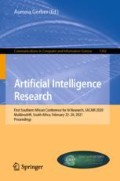Abstract
Reasoning in the presence of inconsistencies and in the absence of complete knowledge has long been a major challenge in artificial intelligence. In this paper, we revisit the classical semantics of propositional logic by generalising the notion of world (valuation) so that it allows for propositions to be both true and false, and also for their truth values not to be defined. We do so by adopting neither a many-valued stance nor the philosophical view that there are ‘real’ contradictions. Moreover, we show that satisfaction of complex sentences can still be defined in a compositional way. Armed with our semantic framework, we define some basic notions of semantic entailment generalising the classical one and analyse their logical properties. We believe our definitions can serve as a springboard to investigate more refined forms of non-classical entailment that can meet a variety of applications in knowledge representation and reasoning.
Access this chapter
Tax calculation will be finalised at checkout
Purchases are for personal use only
Notes
- 1.
We could, in principle, also have used
 in the definition of satisfaction, but here we shall adopt the (possibly superfluous) stance that truth of a fact within the ‘actual’ world and truth of a sentence at given worlds are notions sitting at different levels, or, at the very least, are notions of subtly different kinds.
in the definition of satisfaction, but here we shall adopt the (possibly superfluous) stance that truth of a fact within the ‘actual’ world and truth of a sentence at given worlds are notions sitting at different levels, or, at the very least, are notions of subtly different kinds. - 2.
We do not rule out the remaining combinations; space and time constraints prevent us from assessing them here.
References
Alchourrón, C., Gärdenfors, P., Makinson, D.: On the logic of theory change: partial meet contraction and revision functions. J. Symbolic Logic 50, 510–530 (1985)
Arieli, O., Avron, A.: The value of the four values. Artif. Intell. 102, 97–141 (1998)
Baader, F., Calvanese, D., McGuinness, D., Nardi, D., Patel-Schneider, P. (eds.): The Description Logic Handbook: Theory, Implementation and Applications, 2nd edn. Cambridge University Press, Cambridge (2007)
Ben-Ari, M.: Mathematical Logic for Computer Science, 3rd edn. Springer, London (2012)
Berto, F., Jago, M.: Impossible Worlds. Oxford University Press, Oxford (2019)
Berto, F., Jago, M.: Impossible worlds. In: Zalta, E.N. (ed.) The Stanford Encyclopedia of Philosophy. Metaphysics Research Lab, Stanford University, fall 2018 edn. (2018)
Chellas, B.: Modal Logic: An Introduction. Cambridge University Press, Cambridge (1980)
D’Agostino, M., Gabbay, D., Hähnle, R., Posegga, J. (eds.): Handbook of Tableau Methods. Kluwer Academic Publishers, Dordrecht (1999)
Fitting, M.: Kleene’s three valued logics and their children. Fundamenta Informaticae 20(1), 113–131 (1994)
Hansson, S.: A Textbook of Belief Dynamics: Theory Change and Database Updating. Kluwer Academic Publishers, Dordrecht (1999)
Kraus, S., Lehmann, D., Magidor, M.: Nonmonotonic reasoning, preferential models and cumulative logics. Artif. Intell. 44, 167–207 (1990)
Lehmann, D., Magidor, M.: What does a conditional knowledge base entail? Artif. Intell. 55, 1–60 (1992)
Makinson, D.: Bridges from Classical to Nonmonotonic Logic, Texts in Computing. Texts in Computing, vol. 5. King’s College Publications, London (2005)
Papadimitriou, C.: Computational Complexity. Addison-Wesley, Boston (1994)
Priest, G.: An Introduction to Non-Classical Logic: From If to Is. Cambridge Introductions to Philosophy, 2nd edn. Cambridge University Press, Cambridge (2001)
Priest, G., Berto, F., Weber, Z.: Dialetheism. In: Zalta, E.N. (ed.) The Stanford Encyclopedia of Philosophy. Metaphysics Research Lab, Stanford University, fall 2018 edn. (2018)
Rescher, N., Brandom, R.: The Logic of Inconsistency. A Study in Non-Standard Possible-Worlds Semantics and Ontology. Basil Blackwell, Oxford; APQ Library of Philosophy (1979)
Swart, H.: Logic: Mathematics, Language, Computer Science and Philosophy, vol. 1. Peter Lang (1993)
Acknowledgements
I would like to thank the anonymous referees for their comments and helpful suggestions. This work was partially supported by the National Research Foundation (NRF) of South Africa.
Author information
Authors and Affiliations
Corresponding author
Editor information
Editors and Affiliations
Rights and permissions
Copyright information
© 2020 Springer Nature Switzerland AG
About this paper
Cite this paper
Varzinczak, I. (2020). An Exercise in a Non-classical Semantics for Reasoning with Incompleteness and Inconsistencies. In: Gerber, A. (eds) Artificial Intelligence Research. SACAIR 2021. Communications in Computer and Information Science, vol 1342. Springer, Cham. https://doi.org/10.1007/978-3-030-66151-9_16
Download citation
DOI: https://doi.org/10.1007/978-3-030-66151-9_16
Published:
Publisher Name: Springer, Cham
Print ISBN: 978-3-030-66150-2
Online ISBN: 978-3-030-66151-9
eBook Packages: Computer ScienceComputer Science (R0)


 in the definition of satisfaction, but here we shall adopt the (possibly superfluous) stance that truth of a fact within the ‘actual’ world and truth of a sentence at given worlds are notions sitting at different levels, or, at the very least, are notions of subtly different kinds.
in the definition of satisfaction, but here we shall adopt the (possibly superfluous) stance that truth of a fact within the ‘actual’ world and truth of a sentence at given worlds are notions sitting at different levels, or, at the very least, are notions of subtly different kinds.